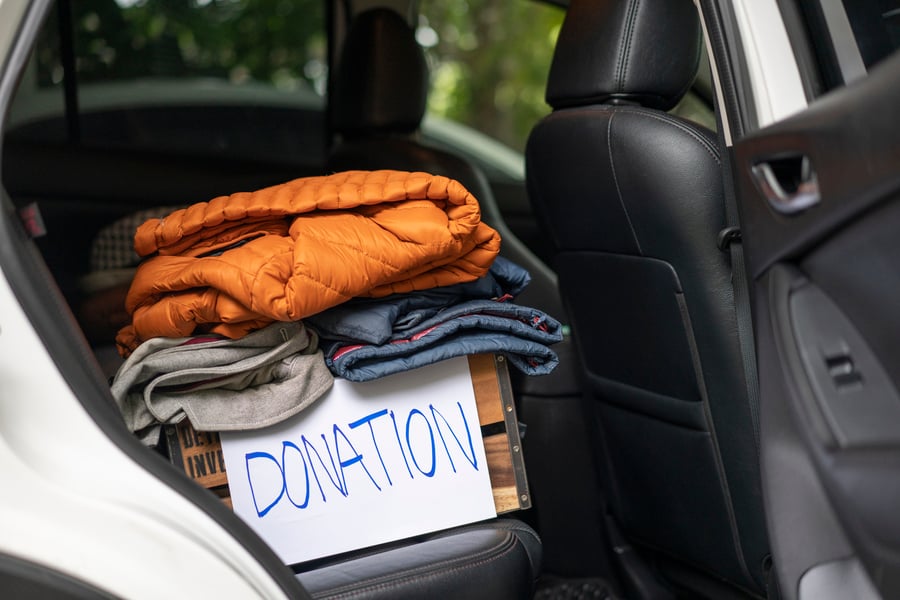

Last November, I carried an armload of freshly finished patchwork quilts to the storage closet of a refugee resettlement agency. I plumped quilt after quilt onto the shelves, next to piles of dishes and stacks of furniture, then went back to my SUV for more quilts and for billows of new pillows, slippery in their plastic bags.
“There we go, everything that a family needs for a good night’s sleep,” I said to the agency staffer.
“I’ll send you the donation receipt,” she replied, but I waved her off. “No need,” I said.
For the past several years, I haven’t bothered with receipts for charitable donations. I’m spending plenty of money. Making quilts for families starting over isn’t cheap. Neither is collecting new dolls and toys to outfit with clothes and miniature quilts for foster children.
But in a quirk of cash flow, it temporarily wasn’t worth it for my husband and me to itemize our donations of goods and money.
Eliminating write-offs had an unexpected bonus: It restored my joy in giving. Instead of cataloging every single thing and dollar we donated, we just … gave.
In the depths of the pandemic, we learned of two nearby families in distress, dealing with a confluence of misery: medical crises and job loss. We delivered dinners weekly, gifts for birthdays, gift cards for necessities and yes, quilts. How much altogether? I have no idea and I don’t care, because I didn’t have to justify our generosity to the IRS.
Direct donations to help flood victims. Support to friends-of-friends in crisis. Short stacks of quilts for foster care agency fundraising auctions. It felt wonderful to simply rise to each occasion without thinking about delaying a donation into the next tax year to thread the IRS-defined needle.
Tallying up the receipts from our donations used to be a satisfying exercise. It was heartening to see how our planned and spontaneous gifts added up to a significant deduction. There it was, in black and white on the form: evidence that we were good people. But the very process of calculating our generosity also invoked the lesser angels of our souls. We helped ourselves by helping others.
Getting rid of the tax paperwork made me a more cheerful giver.
As I let go of documentation and embraced anonymity, I also found that I no longer expected thanks, which is, after all, the emotional equivalent of a receipt. We trusted that what we gave would end up where it was needed, with people who might be unknown to us, but not anonymous.
A few days after I wrestled the unruly pillows into the capable hands of the refugee agency, I was trekking through a shiny new corridor of the Charlotte airport. A family trudged toward me, the father pushing a luggage cart piled high with suitcases and the mother, a stroller occupied by a sleeping baby and an exhausted toddler. He wore an overcoat. She wore a wide scarf draped over her head. A heavy sweater weighed down her long silky dress. They might have been from Ukraine, or Afghanistan, walking slowly into what was likely a new life here in America. With any luck, a warm bed made with a bright quilt awaits.

Executives from LPL Financial, Cresset Partners hired for key roles.

Geopolitical tension has been managed well by the markets.

December cut is still a possiblity.

Canada, China among nations to react to president-elect's comments.

For several years, Leech allegedly favored some clients in trade allocations, at the cost of others, amounting to $600 million, according to the Department of Justice.
Streamline your outreach with Aidentified's AI-driven solutions
This season’s market volatility: Positioning for rate relief, income growth and the AI rebound
